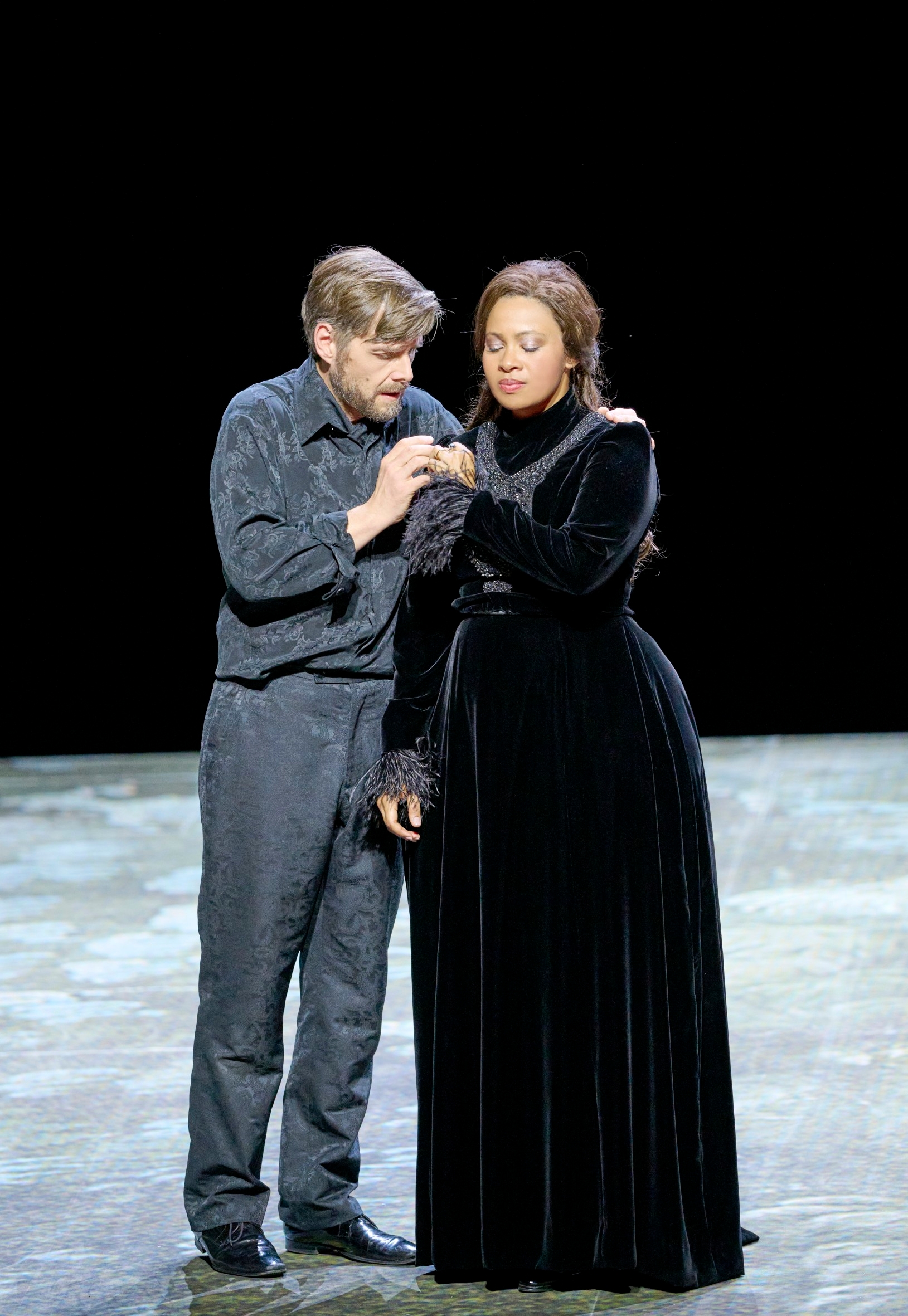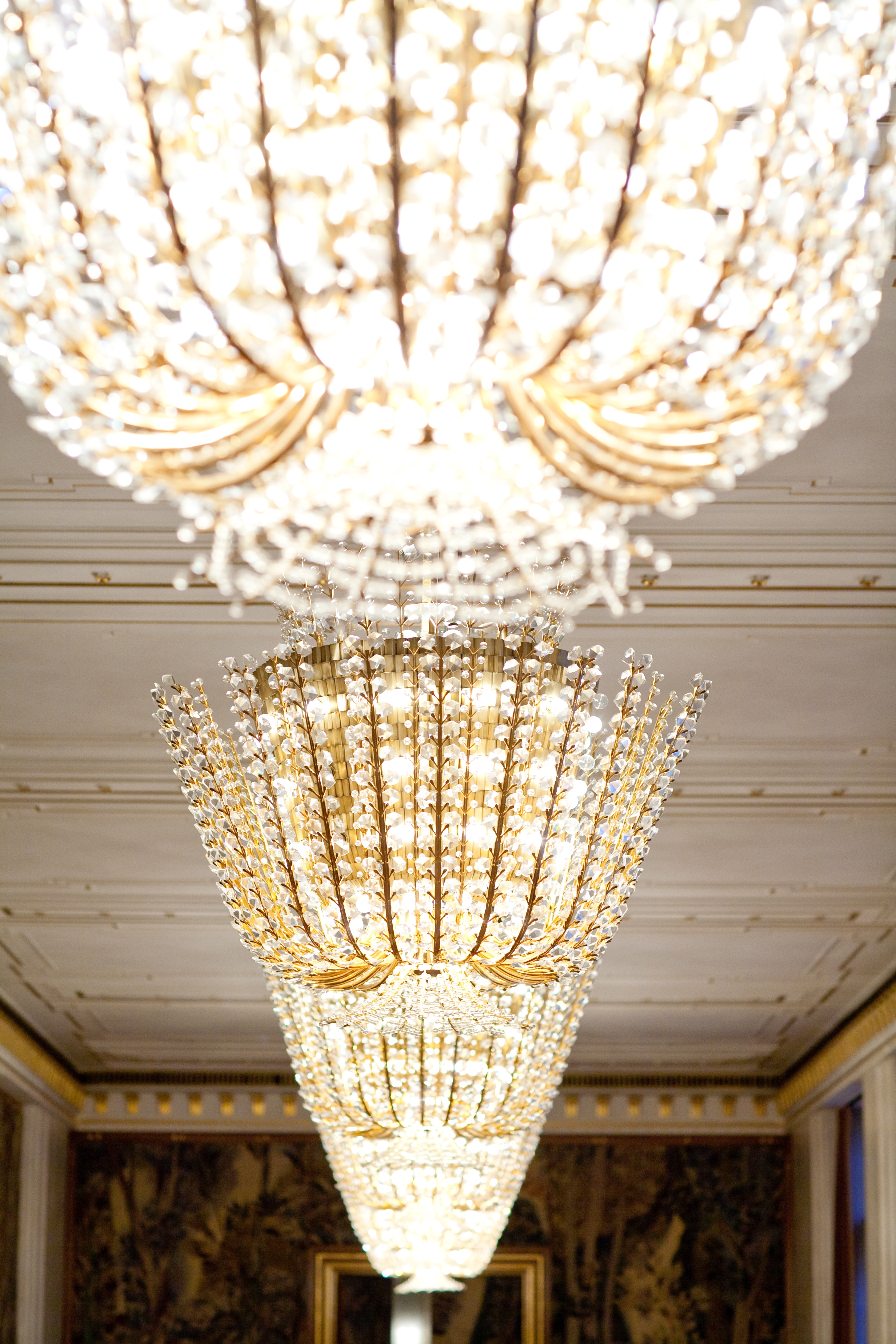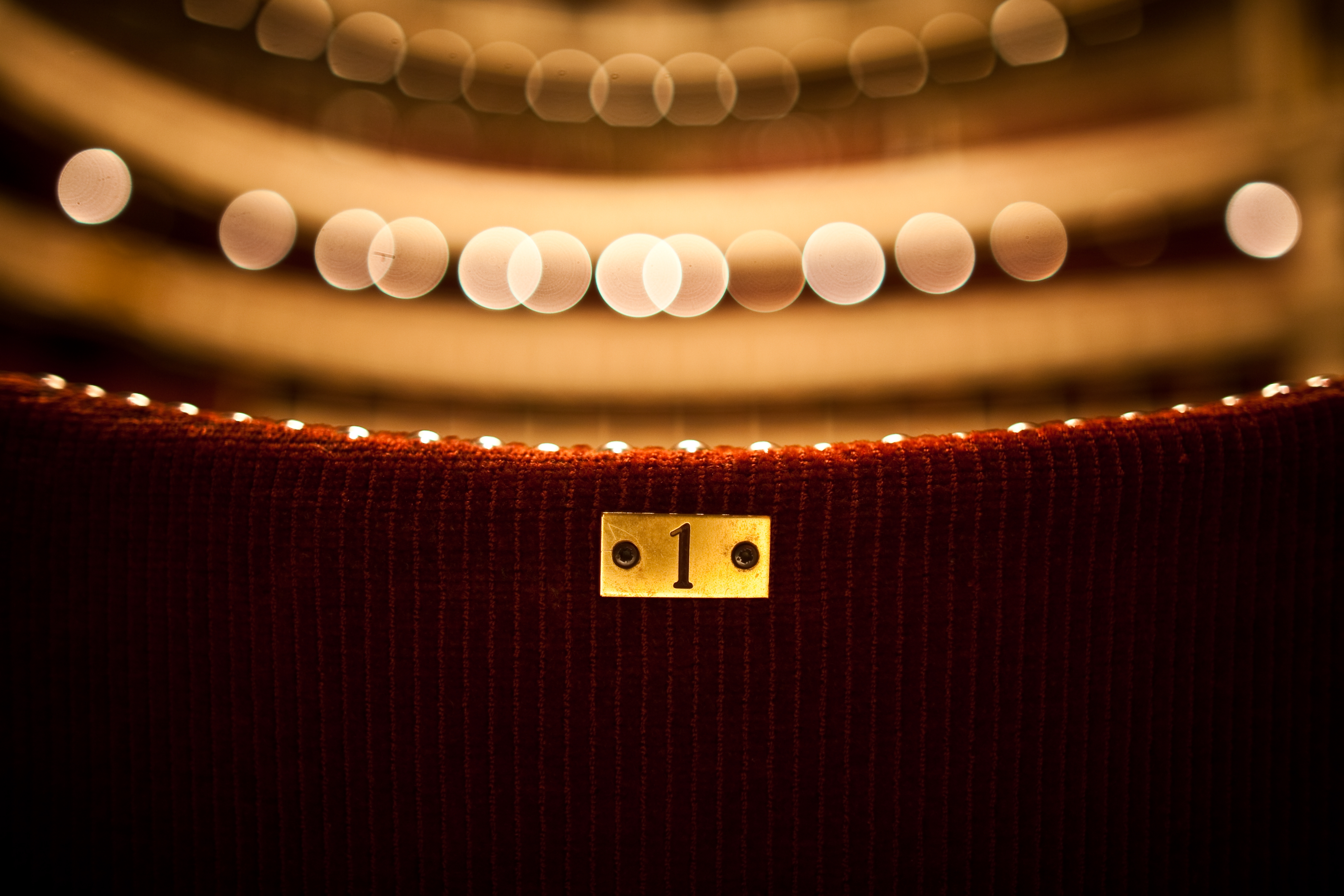
Short Summary
It was supposed to be the best day for Susanna and Figaro: Their wedding day. But Count Almaviva is stalking the bride.
Don Basilio pesters Susanna with his intercession for the Count, Marcellina wants to sue for the old marriage contract with Figaro and Doctor Bartolo supports her, also out of old anger against Figaro. And then there is the page Cherubino, who is in love with all the women and whom all the women want to have around, preferably disguised as a girl ... Only with the combined forces of Figaro's imagination, Susanna's cleverness and the support of the betrayed countess can this "great day" be brought to a happy end.
Le nozze
di Figaro
Storyline
The morning of Susanna and Figaro's wedding day. Figaro misses the room that Count Almaviva has designated for him and Susanna. Susanna does not agree with the choice of room, which is located between the Count's and Countess's chambers.
The Count, she explains to Figaro, regrets having abolished the lordship on his estates, which guarantees the lord the first night with every new bride. Now he is making advances to her. He has chosen the room to be close to Susanna. Figaro swears to thwart the count's plans.
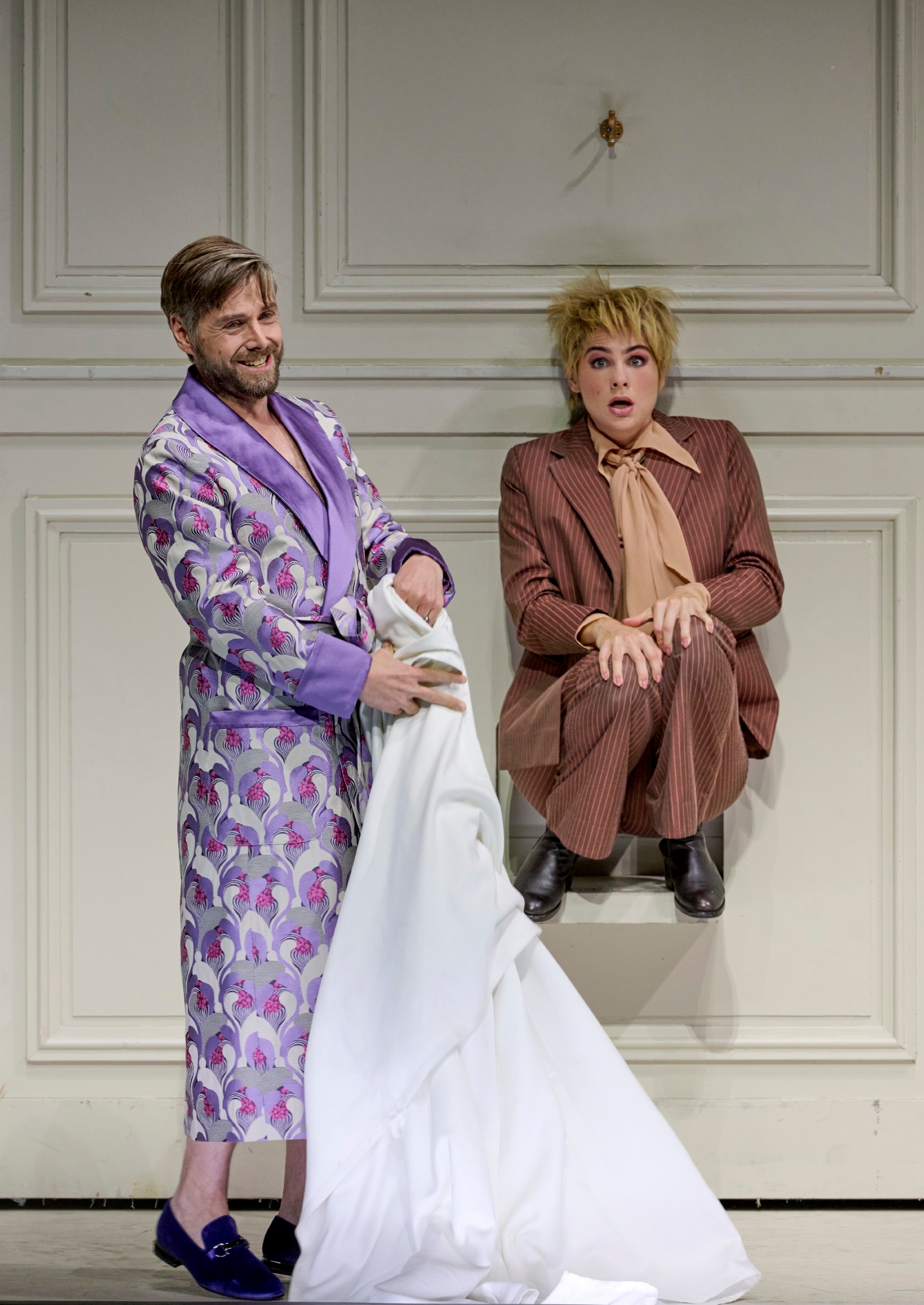
Marcellina wants to assert old claims on Figaro. She granted him a loan at the time. If he cannot repay it, he must marry her, according to the contract. Doctor Bartolo supports his housekeeper Marcellina to take revenge on Figaro. Bartolo once wanted to marry the now Countess himself, but the Count beat him to it - with Figaro's support.
The page Cherubino asks Susanna for help: the Count caught him in Susanna's cousin Barbarina's room the night before. Now he wants to dismiss him. Susanna is told to ask the countess to put in a good word for Cherubino. When the count enters, Cherubino hides. From his hiding place, he hears the Count harassing Susanna. When Don Basilio's voice is heard, the Count also has to hide to avoid being discovered in a compromising position. He chooses Cherubino's hiding place of all places. The page manages to save himself in time and is hidden under a cloth by Susanna.
Don Basilio woos Susanna for the Count. When he mentions that everyone in the castle has noticed Cherubino's infatuation with the Countess, the Count emerges angrily from his hiding place. Susanna and Basilio both try to placate the Count. The Count demonstrates how he caught Cherubino with Barbarina the previous evening. He lifts the cloth under which Cherubino is hiding and discovers him again.
The countess mourns the count's love. She asks Susanna to report on the Count's attempts at seduction. Figaro plans a double intrigue. Basilio is to deliver a letter to the Count accusing the Countess of having an affair. At the same time, Susanna is to grant the Count a rendezvous, to which Cherubino is to be sent in women's clothing in order to dupe the Count.
Susanna and the Countess are about to disguise Cherubino when the Count knocks on the door. Cherubino is quickly hidden in a cabinet and the door is locked. Susanna also hides. The Count, enraged by Figaro's ticket, suspects that his wife is a lover. A noise in the cabinet seems to confirm his suspicions and he demands that the door be opened. The countess explains that Susanna is trying on her wedding dress there and refuses. The Count wants to fetch tools to force the door open and forces the Countess to accompany him. He locks the door to the countess's room from the outside. Susanna fetches Cherubino from the cabinet. The page saves himself by jumping from the balcony into the garden. Susanna locks herself in the cabinet.
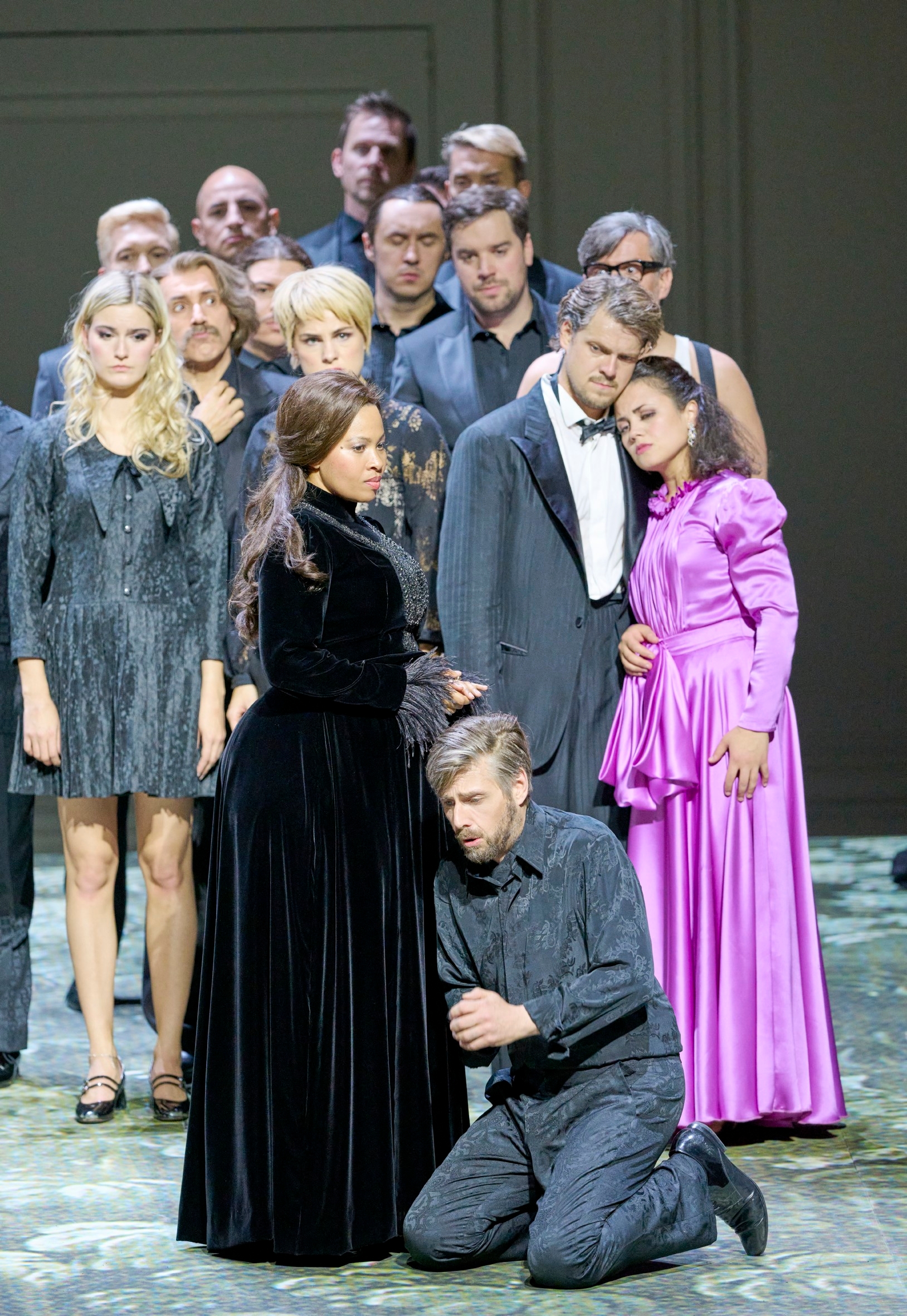
The countess confesses to her husband that Cherubino is in the cabinet. The Count is furious and accuses her of infidelity. Susanna emerges from the cabinet. The Count is confused, the Countess explains that she was only testing him. The compromising note was written by Figaro.
Figaro announces the musicians for the wedding. The Count asks him about the ticket. Figaro feigns ignorance.
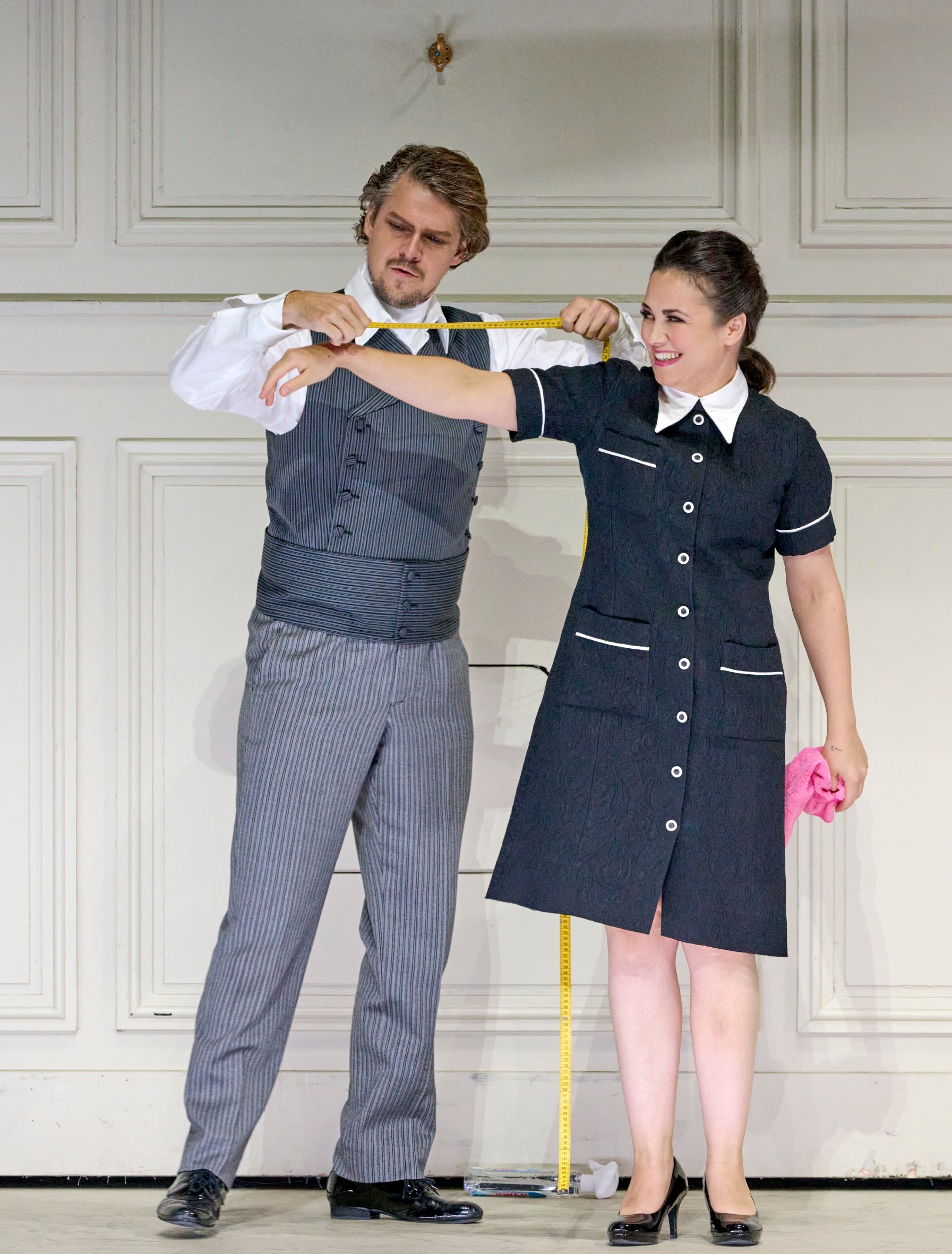
The gardener Antonio, Barbarina's father, comes running angrily: Someone has jumped from the balcony into the garden and trampled his carnations. He suspects Cherubino. Figaro explains that he jumped. Antonio then wants to give him the paper that Cherubino lost when he jumped. The Count takes the paper. It is the page's officer's license. With the help of Susanna and the Countess's whispers, Figaro finds the right explanation: the seal is missing from the patent, which is why the page gave it to him.
Marcellina, Bartolo and Basilio demand that Figaro honor his contract with Marcellina. The Count promises to look into the matter.
The countess and Susanna are now planning their own intrigue. Susanna is to ask the Count for a rendezvous, and the Countess wants to go in her place. Figaro is not involved.
The Count pronounces his verdict: Figaro must pay Marcellina the sum demanded or marry her. By chance, however, it turns out that Figaro is Marcellina's son, who was thought to be lost. The father is Doctor Bartolo. Susanna arrives and is made aware of the new family circumstances. The planned wedding is to become a double wedding, as Marcellina and Bartolo now also want to marry.
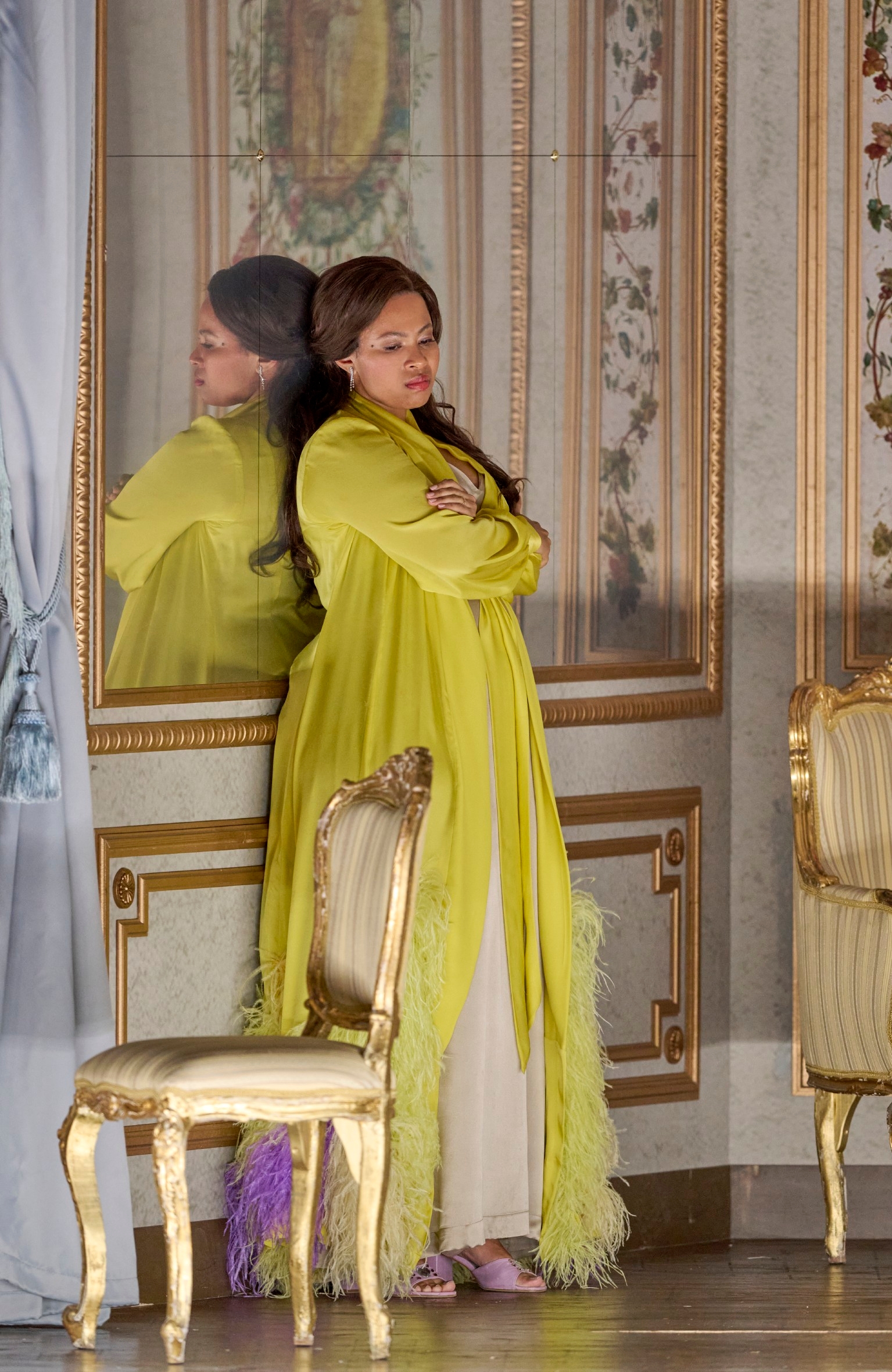
Barbarina wants to disguise Cherubino as a girl. Unrecognized, he is to deliver flowers to the countess with her and other girls. The countess is at odds with the fate that has put her in such an unworthy position. Antonio has found Cherubino's hat and concludes that the page must still be in the castle. The Countess and Susanna write an invitation to the Count. Susanna wants to meet him in the garden at night. He is to send back the seal, a pin, as a sign of consent.
When Cherubino arrives at the countess's house with the girls, he is exposed by Antonio. Barbarina reminds the furious count that he has promised to fulfill her every wish in return for caresses. Now she wants Cherubino to be her husband. Susanna uses the ceremony to prepare for the double wedding to slip the Count the letter.
Barbarina has lost the pin that the Count gave her for Susanna. She unsuspectingly tells Figaro about the Count's commission. Figaro, whom the women have not told, now suspects Susanna of infidelity. He cries to Marcellina. She believes in Susanna's innocence and warns her of Figaro's anger. Figaro has summoned Bartolo and Basilio to the garden as witnesses to Susanna's infidelity.
Susanna and the Countess have arrived in the garden in their changed clothes. Susanna knows of Figaro's jealousy and sings a love song to provoke him, which the hidden Figaro interprets as being addressed to the Count.
Cherubino comes along and sees the Countess disguised as Susanna. He wants to take the opportunity to demand a kiss from the pretend Susanna. While the Countess is still defending herself against Cherubino, the Count arrives. Cherubino disappears and the Count tries vehemently to get his disguised wife, whom he believes to be Susanna. Only when he hears voices does he let her go.
Figaro recognizes Susanna, disguised as the Countess, by her voice. However, he pretends to think she is the countess and woos her fiercely until she lashes out at him. Figaro explains things to Susanna and the two make up.
To provoke the Count, Figaro and the disguised Susanna stage a love scene. The Count screams for help. In the dark, he tracks down Cherubino, Barbarina and Marcellina. Figaro and Susanna feign forgiveness and the Count rebuffs them. When the Countess reveals her disguise, the Count sees through the situation. He in turn begs the countess for forgiveness, which she grants him.
Everyone celebrates the end of the great day and the beginning of the wedding feast.

Figaro recognizes Susanna, disguised as the countess, by her voice. However, he pretends to think she is the countess and woos her fiercely until she lashes out at him. Figaro explains things to Susanna and the two reconcile.
To provoke the Count, Figaro and the disguised Susanna stage a love scene. The Count screams for help. In the dark, he tracks down Cherubino, Barbarina and Marcellina. Figaro and Susanna feign forgiveness and the Count rebuffs them. When the Countess reveals her disguise, the Count sees through the situation. He in turn asks the countess for forgiveness, which she grants him.
Everyone celebrates the end of the great day and the beginning of the wedding feast.
In Barrie Kosky's fast-paced production, Susanna and Figaro have to fight their way through the magnificent rooms of Almaviva's palace from the narrow space the Count has allocated them before the outside space finally opens up as a perspective in the fourth act. Barrie Kosky: "We know from Shakespeare that a garden or a forest - especially in the evening - is a democratic space. Anything is possible there."
In Lorenzo Da Ponte, Wolfgang Amadeus Mozart had finally found the long-sought poet who "understood the theater". The delight in Da Ponte's wonderful theatrical poetry is reflected in every note of Mozart's music, with magnificently composed ensembles such as the sextet in the third act virtually challenging the singers' enthusiasm. But the arias that Mozart writes for the character of Countess Almaviva, for example, are not only incomparable pieces of music, but also cleverly conceived moments of musical dramaturgy in which the action does not simply stand still, but rather seems to breathe calmly.
It was probably a risk that Wolfgang Amadeus Mozart and Lorenzo Da Ponte took right from their first collaboration, but in any case a completely unusual approach in later 18th century Vienna: To begin a new opera without having been commissioned for it beforehand, without any certain prospect of a performance or even remuneration. On top of this, the model chosen by the composer, Beaumarchais' comedy Le Mariage de Figaro, also called into question the realization of the planned opera on a public stage - after all, Joseph II had forbidden the performance of the play, which was charged with revolutionary dynamite, as late as 1785 on the grounds that "the piece contains much that is offensive". Lorenzo Da Ponte dispensed with Figaro's nobility-critical monologue from Beaumarchais' original, but the basic tone remained - and so there is possibly some truth in the account in the librettist's often very free memoirs that it was ultimately due to his, Da Ponte's, diplomatic skills that the Emperor finally ordered the premiere of Le nozze di Figaro on May 1, 1786 in the Hofburgtheater in person.
